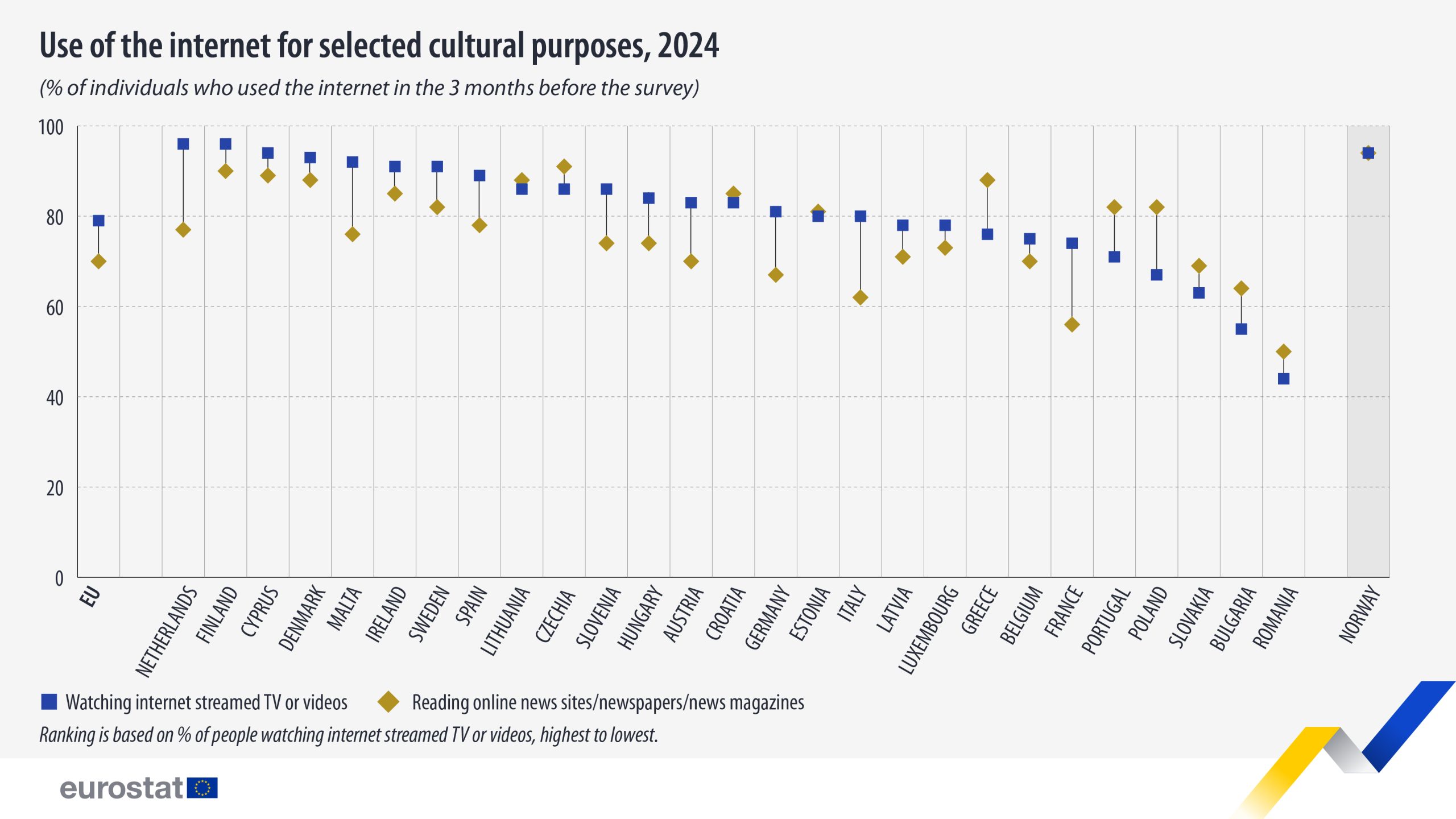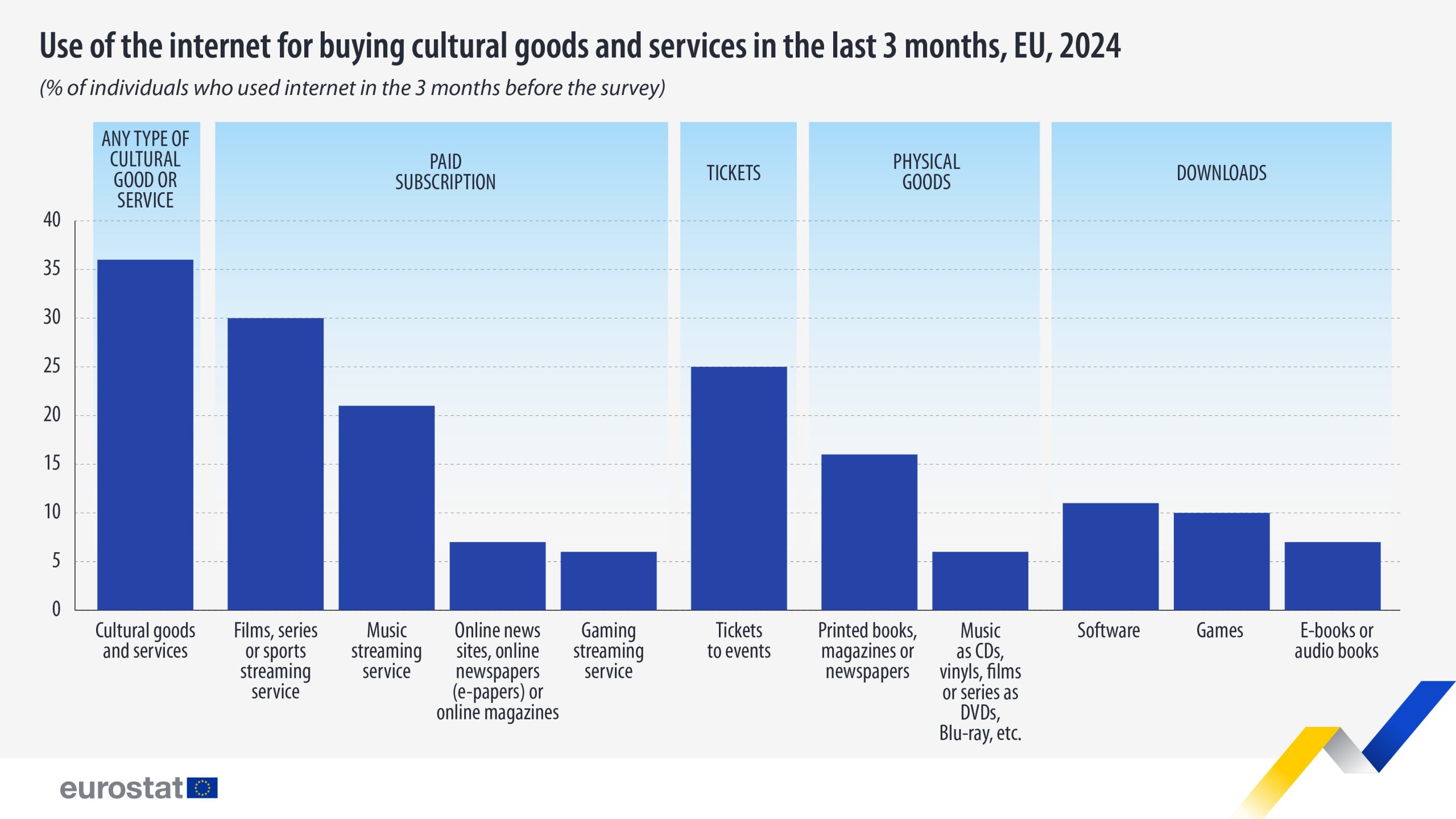This data offers a snapshot of evolving digital habits and the consistent interaction between entertainment and information across the EU.
According to the latest annual EU survey on Information and Communication Technology (ICT) usage, access to cultural goods via the internet is growing in popularity. The most common cultural activity among Europeans online is watching television or films, a habit shared by 79% of respondents in the Eurostat study.


